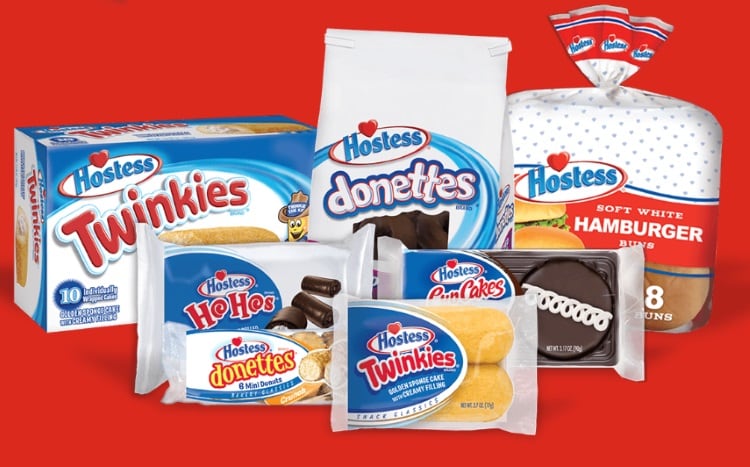Smucker’s – which inherited Cloverhill and Big Texas as part of its $5.6 billion purchase of Hostess Brands in 2023 – said the $40 million sale to JTM Foods will help it cut costs and reduce complexity across its manufacturing network. Cloverhill and Big Texas make pastries including honey buns, Danishes, and cinnamon rolls.
The divestiture of these brands – expected to close in the fourth quarter of fiscal year 2025 – is also a calculated move to enhance the company’s competitive edge in the evolving snack foods industry. Consumer preferences have been shifting toward healthier options, pushing many packaged food companies to rethink their portfolios. Despite these trends, the sweet baked goods category remains a significant growth segment, and Hostess is well-positioned to capitalize on its expansion.
As of February 2025, Hostess Brands operates as a subsidiary of Smucker’s, having closed its headquarters in Kansas and integrated into the One Strawberry Lane headquarters in Orrville, Ohio. This integration offers several strategic advantages to Smucker’s.
Firstly, its focus on indulgence and nostalgia continues to resonate with consumers, even in the face of increasing competition from healthier snack alternatives. Secondly, Hostess has a strong presence in convenience stores that complements Smucker’s existing grocery and mass market distribution, expanding its reach to a broader customer base. Additionally, iconic brands like Twinkies and CupCakes provide significant brand recognition and consumer appeal, enhancing Smucker’s overall product portfolio.
The sweet baked goods category is one of the fastest-growing segments in the snack industry, and Smucker’s aims to leverage Hostess’ market position to drive future growth. “This divestiture reflects our continued commitment to portfolio optimization to prioritize resources to support the execution of our Sweet Baked Snacks strategy, focused on growing the Hostess brand, and advancing our leadership in the sweet baked goods category,” said Dan O’Leary, Smucker’s senior VP and GM of Sweet Baked Snacks and Pet.
The company expects to realise substantial cost synergies by integrating Hostess operations, improving efficiency and profitability. Furthermore, the acquisition aligns with Smucker’s strategic focus on convenient consumer occasions, allowing it to offer a diverse range of snacking options to meet evolving consumer needs.
The storied history of Hostess

By divesting Cloverhill, Big Texas, and other smaller brands, Smucker can allocate more resources toward a brand that has demonstrated resilience. Hostess Brands has been a staple in the American snack industry for decades. The company traces its origins back to 1919, when the first Hostess CupCake was introduced to the public. However, the brand was officially established in 1925 following the acquisition of Taggart Bakery by the Continental Baking Company.
Over the years, Hostess has become renowned for its iconic snack cakes, including Twinkies, which debuted in 1930, and HoHos and Ding Dongs, both introduced in 1967. Despite its longstanding success, the Kansas-based company faced financial turbulence over the years, including two bankruptcy filings in 2004 and 2012. High operating costs, shifting consumer preferences, and labor disputes contributed to these financial struggles, leading to significant operational restructuring. The 2012 bankruptcy forced Hostess to cease operations, resulting in widespread layoffs and product shortages.
However, the brand was revived in 2013 under new ownership, which prioritized operational efficiency and restructured distribution channels. This turnaround proved highly successful, and by 2016, Hostess had gone public again, achieving a valuation of $2.3 billion. Fast forward to 2023, Smucker’s inked a $5.6 billion agreement to acquire Hostess and its assets. The acquisition raised some skepticism, with JPMorgan analyst Ken Goldman calling it a “head-scratcher,” stating, “We are very surprised that SJM (or anyone) is paying this amount.” The deal valued Hostess at $34.25 per share, a 45% premium over its 30-day trading average. Following the announcement, Smucker’s stock declined from $141.58 on September 8 to $128.41 by September 13, reflecting investor concerns about the acquisition’s cost.
Despite these initial concerns, some analysts saw potential, citing its improved commercial model and strong presence in attractive categories. Others predicted significant revenue synergies and enhanced long-term profitability for Smucker’s. In Q3 2023, Hostess reported a 1.9% increase in net revenue, reaching $352.8 million. However, inflationary pressures have impacted consumer spending and continue to influence purchasing behavior across the snacks industry.
“In short, today’s food landscape is a nonstop balancing act in which consumers weigh price and promotion against time, convenience, nutrition, mood, sustainability, and more,” said Anne-Marie Roerink, president of Texas-based market researcher 210 Analytics.
Consumer preferences have evolved, with shoppers increasingly seeking snacks with reduced sugar, higher protein content, and natural ingredients. While Hostess remains synonymous with indulgence, there is potential for product innovation to align with these trends. Premium snack brands continue to gain market share, suggesting that Hostess could explore limited-edition products, premium ingredients, or collaborations to maintain consumer engagement. Smucker’s renewed focus on Hostess also suggests that it may look to modernize its offerings, potentially introducing new flavors, portion-controlled packaging, or even healthier versions of its classic snacks.
Smucker’s growth strategy

In recent years, Smucker’s has taken steps to refine its brand portfolio, including the divestiture of several pet food brands in February 2023 and Voortman cookies in October 2024 for approximately $305 million in cash to Second Nature Brands. This reflects the company’s long-term goal to focus on high-growth categories. Its decision to divest non-core brands like Cloverhill and Big Texas will further streamline operations and improve financial discipline. With approximately 400 employees transferring to JTM Foods and the divested brands generating an estimated $60 million in annual sales, Smucker’s can now focus on maximizing Hostess’s profitability. The $40 million in proceeds from the sale will also help reduce debt, an essential step given the high cost of acquiring Hostess.
Smucker’s decision to offload non-core assets while doubling down on Hostess signals a broader industry shift toward strategic portfolio management. As major food brands refine their focus, balancing tradition with innovation is becoming critical to long-term success. For investors and industry professionals, this shift underscores the importance of adaptability. Companies that proactively manage their brand portfolios and streamline operations will be best positioned to capitalize on emerging market opportunities. Smucker’s prioritisation of Hostess reflects confidence in the brand’s ability to drive sustained growth and profitability in an evolving consumer landscape.
By concentrating on the Twinkies maker, Smucker’s is also positioning itself as a leader in the sweet baked goods sector. The company’s move intensifies competition in the sector, and competitors like Little Debbie, Entenmann’s, Pepperidge Farm, Sara Lee, and new entrant Wonder will need to adapt through innovation, strategic marketing, and operational efficiency to maintain and grow their market positions.


